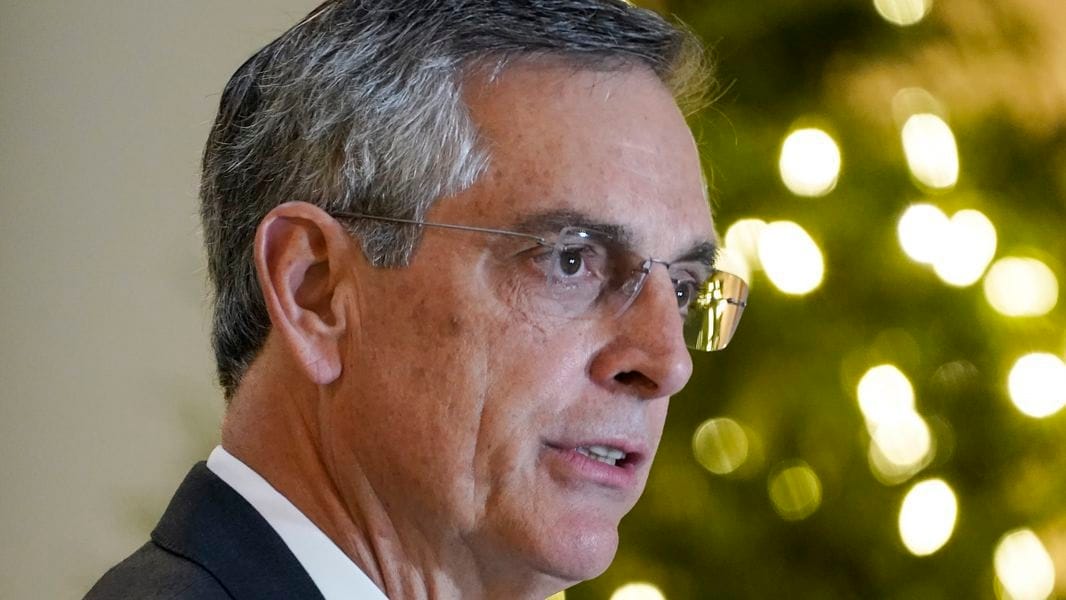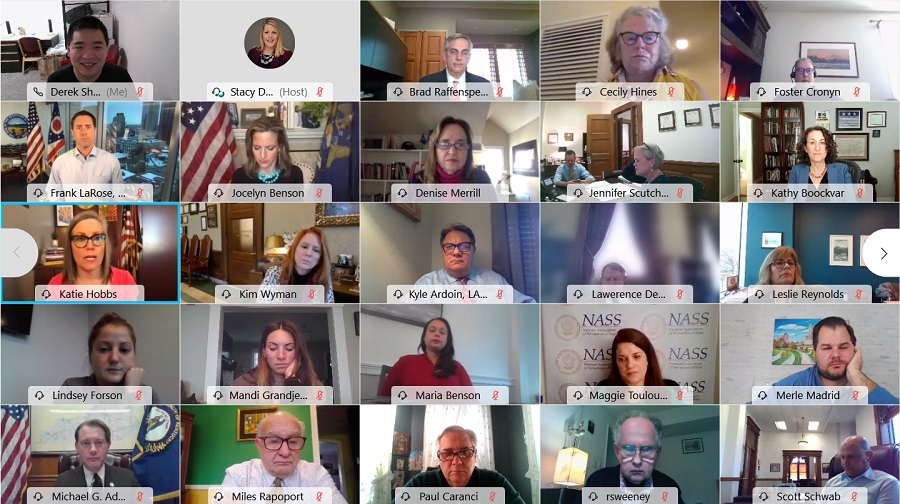Stamping out Election Falsehoods Like Playing Whack-a-Mole, Says Georgia’s Brad Raffensperger
February 5, 2021 – With election misinformation and conspiracy theories rampant in Election 2020, secretaries of state representing pivotal states swapped stories on Thursday about the howlers they faced – and what they did to try to maintain public trust in upholding election integrity. Perhaps no
Derek Shumway

February 5, 2021 – With election misinformation and conspiracy theories rampant in Election 2020, secretaries of state representing pivotal states swapped stories on Thursday about the howlers they faced – and what they did to try to maintain public trust in upholding election integrity.
Perhaps no one faced more pressure to act to overturn the results of his state’s presidential vote tally than Georgia Secretary of State Brad Raffensperger.
Among the many false accusations he faced was that a Ron Raffensperger, allegedly a brother of his, works for a Chinese technology firm. While there is such a person, and that person does in fact work for the Chinese telecom equipment giant Huawei, that Ron Raffensperger is not Brad Raffensperger’s brother.
At Thursday’s meeting of the National Association of Secretaries of State, Raffensperger said again that he does not have a brother named Ron. He also expressed condolences for the real Ron Raffensperger out there.
Stamping out falsehoods is like playing a game of ‘rumor-whack-a-mole,’ said Brad Raffensperger. Once you eradicate one rumor, another just pops up. It’s as if the truth has 30,000 Twitter followers while falsehood has 80 million followers, he added.

Screenshot of the NASS webinar
Arizona Secretary of State Katie Hobbs addressed the “Sharpiegate” scandal, another fake claim concocted by Republicans. Sharpiegate was the wrong notion pushed by some that Sharpie pens distributed at polling places were handed out for voting.
But the felt-tip pen’s ink bled through the ballot, making it unreadable by a machine and thus keeping the Sharpie victim’s vote from being counted. The twist in this particular story is that only the Sharpie-marked ballots cast by Republican candidates were thrown out, somehow.
While recognizing the seriousness of this misinformation campaign, exacerbated by Eric Trump’s tweets about it, souvenir Sharpies were ordered bearing “Sharpiegate 2020” printed on them – just as a joke, said Hobbs.
Michigan had a plan in place for months on how to collect, process, and release voting results, said Secretary of State Jocelyn Benson. However, because its processes were so efficient, Michigan caught its critics off guard. This exposed Michigan to accusations of allegedly counting its ballots too fast in an effort to try to “fix” the election. Robocalls targeted minority majority communities, including in Detroit.
Ohio also anticipated a barrage of misinformation. As a preemptive measure, the state rolled out numerous tools and resources to inform citizens of voting processes.
Secretaries of state need to help voters build confidence knowing their voice will be heard in a fair and honest contest, and not to tear it down, said Frank LaRose, Ohio Secretary of State. He praised Ohio’s election integrity and said it had a record low in ballot rejection, and a record high in ballot workers.
The state also tried to stop spreaders of misinformation by warning of felony charges for spreading lies.









Member discussion